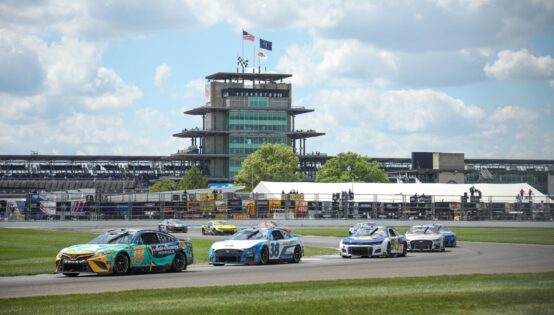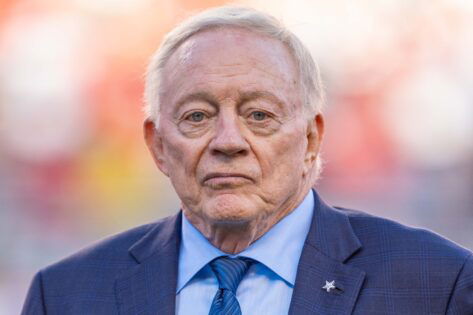NASCAR’s wild In-Season Bracket Challenge is about to hit its peak. And all eyes are on Indy. This weekend, the iconic Brickyard 400 isn’t just another race; it’s the stage for a million-dollar showdown between Ty Gibbs and Ty Dillon. One drives for powerhouse Joe Gibbs Racing, the other, for the gritty underdog crew at Kaulig Racing. Both drivers are just 160 laps away from grabbing the biggest jackpot of this season.
Dubbed “March Madness for racers,” the bracket format has given the mid-season a serious jolt of energy, turning every pass, pit stop, and strategy call into a playoff-worthy moment. But for these two Tys, the stakes go way beyond bragging rights. It’s about a massive payday. This could turn out to be a potential game-changer for their teams, their futures, and even their tax returns.
What is the NASCAR In-season Tournament, and its $1 million prize money?
The NASCAR In-Season Challenge is a bracket-style competition designed to inject fresh energy into the Cup Series summer schedule. Modeled after the NCAA’s March Madness, it features a 32-driver head-to-head knockout format that unfolds over five select races. As you are aware, it started at EchoPark Speedway and is now culminating at Indianapolis.
Now, after each round, the highest-finishing driver in each pairing advances, with ties broken first by best individual finish, then by regular-season points. The process narrows the field: 32 drivers in Round 1, then 16, 8, 4, and finally, now the last two dueling at Indianapolis.
The winner of this final head-to-head not only claims the inaugural title but also pockets a cool $1 million. This sum instantly raised the stakes for every matchup, even if the event does not affect playoff points or championship standings.
Who will receive the $1 million prize money? The driver or the team owner?
Now, just days before the finale, NASCAR raised eyebrows by clarifying that the $1 million grand prize will go directly to the winning team owner, and it’s not the driver who will win the cash. This move surprised many, as early communications suggested drivers would get the check. According to NASCAR and insiders like Bob Pockrass, the money will be awarded “just like the purse.” Yes, you read that right. It will go to the owner first, who then has discretion to distribute it based on internal team or driver contracts.
I believe when the in-season tournament was first announced, the understanding of many in the garage was that the $1 million would go directly to the driver. But NASCAR says it will be paid to owner just like the purse (and depends on driver contract on how much driver gets). https://t.co/dx3xDOLYfx
— Bob Pockrass (@bobpockrass) July 22, 2025
Naturally, in some cases (Ty Dillon), drivers with strong negotiating leverage might see a big share. Similarly, in others, especially among younger drivers or those with less sway (Ty Gibbs), the team could retain more or all of the pot. Well, this diverges from the All-Star Race format. Here, drivers are often direct recipients of the headline reward. Plus, it creates new intrigue (and sometimes tension) about how racing’s newest big payday is carved up.
What are the tax implications of $1 million on drivers and team owners?
The $1 million awarded via the In-Season Tournament is considered taxable income under U.S. law. So now, when the prize money is paid to the team owner, the team is responsible for reporting it as revenue. Thus, they will incur all applicable federal and state taxes.
Similarly, if the owner subsequently pays out a portion to the driver, those funds become taxable income for the driver. In this case, it can be potentially subject to the highest marginal rate for high earners (currently up to 37% federally, plus state taxes as applicable).
In summary:
The team owner pays taxes on the entire $1 million as business income.
Any additional payout to the driver is taxed again, this time as personal income to the driver.
The end result: both parties may face hefty tax bills. The driver’s net windfall will be determined by contract terms and after-tax distribution. This “double dip” reflects the common NASCAR system for prize money and creates notable differences from situations where drivers win direct award checks.
Is the NASCAR In-Season Tournament creating two different winners?
The In-Season Tournament intentionally produces two types of winners. First, the driver who outperforms rivals in head-to-head battles. And second, the team owner who receives the cash windfall. While the driver basks in the public spotlight and headlines, the owner claims the actual prize money. This situation has drawn fan debate and driver frustration.
The winner in the garage is the owner, whose coffers receive the boost. Whereas, in the media and memorabilia, it’s the driver who takes the victory lap. The payout difference is stark! The entire $1 million is paid out as a lump sum to the owner, while the driver’s share (if any) depends on contractual agreements and negotiation power. This bifurcated system means the tournament’s celebration may look like a solo parade. But the financial spoils are split behind the scenes.
Will the NASCAR In-Season Tournament mean the same for drivers and team owners moving forward?
NASCAR’s last-minute clarification that the $1 million check goes to the owner, not the driver, is already influencing the perception of the tournament. It is natural, setting a potential precedent for future seasons. Drivers are keenly aware of the impact, with some expressing disappointment over the lack of guaranteed payout. For owners, the prize creates fresh incentive to invest in teams with the hope of major mid-season returns.
As a result, going forward, this could see driver contracts could become more specific about in-tournament bonuses. Similarly, teams might leverage the windfall for upgrades, infrastructure, or talent retention. In short, the NASCAR In-Season Tournament promises to remain a major financial lever for team owners. But its value to drivers like Ty Dillon and Ty Gibbs will increasingly hinge on their ability to negotiate direct shares of any bonus pools.
The post NASCAR In-Season Tournament: How Much Money Will the Winning Driver & Team Owner Receive? Tax Cuts and Payouts Explored appeared first on EssentiallySports.



